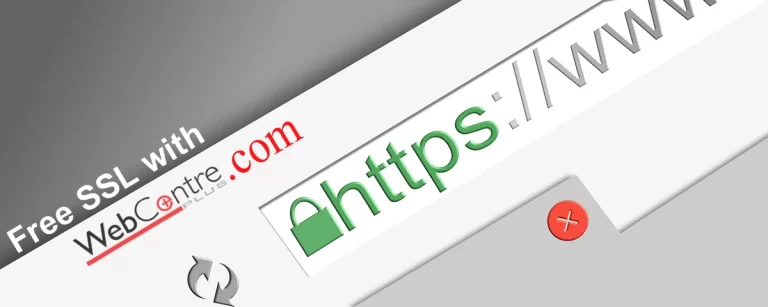Welcome to theCUBE’s special showcase with Unstoppable Domains. I’m John Furrier, your host of theCUBE here in Palo Alto, California. And Matt Gould is the unstoppable domains CEO and founder of Unstoppable Domains. Matt, great to come on.
Unstoppable Domains
So first of all, love the story you’ve got going on here. Love the approach, very innovative, but you’re also on the big Web3 wave, which we know leads into, metaverse unlimited new ways, people are consuming information and content, and applications are being built differently. This is a major wave and it’s happening.
Some people are trying to squint through the hype versus reality, but you don’t have to be rocket science to realize that it’s a cultural shift and a technical shift going on with Web3.
So this is kind of what’s happening in the market. So give us your take. What’s your reaction? You’re in the middle of it.
Yeah, well, I would say it’s a torrent of change that got unleashed just over a decade ago with Bitcoin coming out and giving people the ability to have digital items that they could own themselves online. And this is a new thing.
And people coming, especially from my generation of millennials, they spend their time online in these digital spaces and they’ve wanted to be able to own these items and you see it from, you know Gaming and Fortnite and Skins and Warcraft and all these other places.
But this is really being enabled by this new crypto technology to just extend to a whole lot more applications, from money, which everyone’s familiar with, to NFT projects like Board Apes or CryptoBucks.
You know, I was listening to your podcast. You guys got a great pod. I think you’re on 117 episodes now and growing.
You guys do a deep dive, so people watching check out the Unstoppable Domains Podcast. But on the last podcast, Matt, you mentioned some of the older generations like me, I grew up with IP addresses and before the web, they called it the information super highway.
Not Called The Web?
It wasn’t even called the web yet, but IP was generated by the United States Department of Commerce and R&D, which became the internet, the internet became the web.
Back then it was just to get some web pages up and find what you’re looking for. Very analogue compared to what’s now today, now you mentioned gaming. You mentioned how people are changing.
A Cultural Shift
Can you talk about your view of this cultural shift?
And we’ve been talking about the queue for many, many years now, but it’s happening now where the expectation of the audience and the users and the people consuming and communicating and bonding in groups, whether it’s gaming or communities are expecting new behaviours, new applications, and it’s a forcing function.
The Shift
This shift is happening now, what’s your reaction to that? What’s your explanation? >> Yeah, well, I think it just goes back to the shift of people’s where are they spending their time? And if you look today, most people spend 50% plus of their time in front of a screen.
And that’s just a tremendous amount of effort. But if you look at how much of their assets are digital, it’s like less than 1% of their portfolio would be some sort of digital asset compared to literally 50% of every day sitting in front of a screen.
And simultaneously what’s happening is these new technologies are emerging around cryptocurrencies, blockchain systems, ways for you to track digital ownership of things, and then kind of bring that into your different applications.
So one of the big things that’s happening with Web3 is this concept of data portability, meaning that I can own something on one application and then I could potentially take that with me to several other applications across the internet.
And so this is like the emerging digital property rights that are happening right now as we transition from a model in Web2, where you are on a hosted service like Facebook, it’s a walled garden, they own and control everything.
You are the product, they’re mining you for data and they’re just selling ads, right? To a system where it’s much more open. You can go into these worlds and experiences.
You can take things with you and you can leave with them. And most people are doing this with cryptocurrency.
Maybe you earn an end-game currency, you can leave and take that to a different game, and you can spend it somewhere else. So the user is now enable to bring their data to the party.
Whereas before now, you couldn’t do that. And that data includes their money or that includes their digital items. And so I think that’s the big shift that we’re seeing and that changes a lot in how applications serve up to users.
It’s going to change their user experiences for instance. >> I think the script has flipped and you’re right. I agree with you. I think you guys are smart to see it. And I think everyone who’s on this wave will see it.
Done With Being Mined
Let’s get into that because this is happening. People are saying, “I’m done with being mined “and being manipulated by the big Facebook “and the LinkedIns of the world who are using the user.”
Now, the contract was a free product and you gave up your data, but then it got too far. Now people want to be in charge of their data. They want to broker their data.
They want to collect their digital exhaust, maybe collect some things in a game, or maybe do some commerce in an application or marketplace.
So these are the new use cases. How does a digital identity architecture work with Unstoppable Domains? How would you guys enable that?
Can you take us through the vision of where you guys came on this because it’s unique, you had an NFT and kind of the domain name concept coming together, can you explain?
Yeah, so we think we approach the problem for if we’re going to rebuild the way that people interact online, what are kind of the first primitives that they’re going to need in order to make that possible?
And we thought that one of the things that you have on every network, like when you log on to Twitter, you have a Twitter handle when you log on to Instagram, you have an Instagram handle.
It’s your name, right? You have that name that’s on those applications. And right now what happens is if users get kicked off the platform, they lose 100% of their followers, right?
And also, in some cases, they can’t even directly contact their followers on some of these platforms.
Social Networks
There’s no way for them to retain this social network. So you have all these influencers, who are today’s small businesses, who build up these large, you know profitable, small businesses online, being key opinion leaders to their demographic.
And then they could be deplatformed, or they’re unable to take this data and move to another platform if that platform raises their fees. You’ve seen several platforms increase their take rates.
You have 10, 20, 30, 40%, and they’re getting locked in and they’re getting squeezed, right? So we just said, “You know what, “the first thing you’re going to want to own “that this is going to be your piece of digital property “is going to be your name across these applications.”
If you look at every computing network in the history of computing networks, they end up with a naming system. And when we looked back at DNS, you know which came out in the 90s, it was just a way for people to find these webpages much easier instead of mapping these IP addresses.
And then we said to ourselves, “What’s going to happen in the future?
” Is just like everyone has an email address that they use in their Web2 world in order to identify themselves as they log into all these applications.
They’re going to have an NFT domain in the Web3 world in order to authenticate and bring their data with them across these applications.
So we saw a direct correlation there between DNS and what we’re doing with NFT domain name systems. And the bigger breakthrough here is that NFT domain systems all of these NFT assets that live on a blockchain. They are owned by users.
They’re built on these open systems so that multiple applications can read data off of them and that makes them portable. So we were looking for an infrastructure play like picks and shovels play for the emerging Web3 metaverse.
We thought that names were just something that if we wanted a future to happen, where all 3.5 billion people with cell phones are sending crypto and digital assets back and forth, they’re going to need to have a name, to make this a lot easier instead of these long IP addresses or hex addresses in the case of crypto. >> Yeah, and also people have multiple wallets too.
It’s not like there are all kinds of wallets, variations, and name verification, you see the link tree is everywhere. You know, that’s essentially just an app. I mean, doesn’t do anything. I mean, so you’re seeing people trying to figure it out. I have a GitHub handle.
I got a LinkedIn handle. I mean, what do you do with it? >> Yeah, and then specific to crypto, there was a very hair-on-fire use case for people who buy their first Bitcoin.
And for those in the audience who haven’t done this yet, when you go in and you go into an app and you buy your first Bitcoin or Ethereum or whatever cryptocurrency, and then the first time you try to send it, there’s this field where you want to send it and it’s this very long hex address.
And it looks like an IP address from the 1980s, right?
And it’s like a bank number and no one’s going to use that to send money back and forth to each other.
And so just like domain names and the D apps system replace IP addresses, NFT domains on blockchain systems replace hex addresses for sending and receiving cryptocurrency, Bitcoin, Ethereum, whatever.
And that’s its first use case it plugs in there. So when you want to send money to someone, you can just instead of sending money to a large hex address that you have to copy and paste, you could have an error, or you could send it to the wrong place, it’s pretty scary.
You could send it to johnfurrier.nft. And so we thought that you’re just not going to get global adoption without better UX, the same thing it worked with .com domains.
And this is the same thing for Bitcoin and other crypto. >> It’s interesting, to look at the Web2 or trend from one to two, Web1 went to two, it was all about use, and ease of use, right?
And making things simpler, cluttered, more pages can’t find things that were searched, that was Google.
Since then, has there actually been an advancement? >> Hmm. >> Facebook certainly is not an advancement, they’re hoarding all the data.
So I think we’re broken between that step of a free search to all the resources in the world, to which by the way, they’re mining a lot of data too, with the Toolbar and Chrome.
But now where’s that Web3 crossover? So take us through your vision on digital identity on Web2, Google searching, Facebook’s broken, democracy’s broken, users aren’t in charge to Web3? >> Got it.
Well, we can start at Web1. So the way that I think about it is if you go to Web1, it is very simple, just text web pages.
So it was just a way for someone to like put up a billboard and here’s a piece of information and here’s some things that you could read about it, right?
And then what happened with Web2, was you started having applications being built that had backend infrastructure to provide services.
So if you think about Web2, these are all websites or web portals that have services attached to them, whether that’s a social network service or a search engine or whatever.
And then as we move to Web3, the new thing that’s happening here, is the user is coming onto that experience and they’re able to connect in their wallet or their Web3 identity to that app and they can bring their data to the party.
So it’s kind of like Web1, you just have a static web page, Web2, you have a static webpage with a service, like a server back here, and then Web3, the user can come in and bring their database with them to have much better app experiences.
So how does that change things?
Well, for one, that means that you want data to be portable across apps. So we touched on gaming earlier and maybe if I have an in-game item for one game that I’m playing for a certain company, I can take it across two or three different games.
It also impacts money. Money is just digital information.
So now I can connect to a bunch of different apps and I can just use cryptocurrency to make those payments across those things instead of having to use a credit card.
But then another thing that happens is I can bring an unlimited amount of additional information about myself when I plug in my wallet.
As an example, when I plug into Google Search, for instance, they could take a look at my wallet that I’ve connected and they could pull information about me that I enable to share with them.
And this means that I’m going to get a much more personalized experience on these websites and I’m also going to have much more control over my data. There are a lot of people out there right now who are worried about data privacy, especially in places like Europe.
And one of the ways to solve that is simply to not store the data and instead have the user bring it with them.
You know, I’ve always thought about this and debated it with Dave a lot and my co-host, Do top-down governance privacy laws outweigh the organic bottoms-up innovation?
So what you’re getting at here is, “Hey, if you can have that solved “(laughing) before it even starts.” It was almost as if those services were built for the problem of Web2.
What’s your reaction to that?
I think that is right on the money. And if you look at it as a security, like if I put my security researcher hat on, I think the biggest problem we have with security and privacy on the web today is that we have these large organizations that are collecting so much data on us and they just become these honeypots and there have been huge breaches.
Like Equifax, you know a few years back it was a big one and all your credit card data got leaked, right? And all your credit information got leaked.
And we just have this model where these big companies silo your data, they create a giant database, which is worth hundreds of millions of dollars, if not billions, to be attacked.
And then someone eventually is going to hack that to pull that information. Well, instead, you can look at this at Web3.
So for those in the audience who have used, a Web3 application, one of this D app, to trade cryptocurrencies or something, you’ll know that when you go there, you connect your wall.
So when you’re working with this web, you connect, you bring your information with you and you connect it. That means that the app has none of that stored, right? So these apps that people are using for crypto trading cryptocurrency on apps or whatever, have no stored information.
So if someone hacks one of these defi exchanges, for instance, there’s nothing to steal.
That’s because the only time the information is being accessed is when the user is actively using the site.
And so as someone who cares about security and privacy, I go, “Wow, that’s a much better data model.”
That gives so much more control to the user ’cause the user just permission access to the data only during the period in which they’re interacting with the application.
And so I think you’re right and like we are very excited to be building these tools, right? Because I see it like if you look at Europe, they pass GDPR and then all the companies are going, “We can’t comply with that.
” They keep postponing it or changing it a little bit and trying to make it easier to comply with. But honestly, we just need to switch the data models.
So the companies aren’t even taking the data and then they’re going to be in a much better spot. >> And GDPR is again a nightmare. I think it’s the wrong approach.
I always said it was screwed up because most companies don’t even know where stuff is stored and never mind how they delete someone’s entry in a database.
They don’t even know what they’re collecting. Some at some level they become so complicated. So right on the money there good, good call out. There question for you.
Is this then? Okay, so do you decouple the wallet from the ID or are they together and is it going to be a universal wallet? Do you guys see yourselves as universal domains?
Take me through the thinking around how you’re looking at the wallet and the actual identity of the user, which is important on the identity side, wallet is just universal or is that going to be coming together? >> Well, I think so.
The way that we kind of think about it is that wallets are where people have their financial interactions online.
And then identity is much more about it, it’s kind of like being your passport. So it’s like your driver’s license for the internet.
So these are two kinds of separate products we see long term and work together. So, if you have a domain name, it is easier to make deposits into your wallet because it’s easier to remember to send money to mattgloud.crypto.
And that way it’s easier for me to receive payments or whatever. And then inside my wallet, I’m going to be doing defi trades or whatever.
And that doesn’t have an interaction with names necessarily to do those transactions. But then if I want to sign into a website or something, I could connect that with my NFT domain.
And I do think that these two things are kind of separate. I think we’re going to… Still early, so figuring out exactly how the industry is going to shake out over a five to 10-year time horizon and maybe a little bit more difficult and we could see some other emerging.
.. What you would consider like cornerstones of the crypto ecosystem. But I do think identity and reputation are one of those. And I also think that your financial applications of defi are going to be another.
So those are the two areas where I see it. And just a note on this, when you have a wallet that usually has multiple cryptocurrency addresses, so you’re going to have like 50 cryptocurrency addresses in a wallet.
You’re going to want to have one domain name, that links back to all those because you’re just not going to remember those 50 different addresses.

So that’s how I think that they collaborate and we collaborate with several large wallets as well, like blockchain.com and another 30 plus of these to make it easier for sending out and receiving cryptocurrency.
>> So the wallet is a D app, the way you look at it, the integrated. >> Yeah. >> Whatever you want, just integrate in. How do I log into the decentralized application with my NFT domain name? Because this becomes okay.
I got to love the idea and love my identity. I’m my own NFT. I mean, how this video’s going to be an NFT soon? We get on board with the program here, but how do I log into my app? I’m going to have a D app and I got my domain name.
I have to submit is there benchmarking? Is there an approval process? Are there APIs and SDK kind of thinking around it? How are you thinking about dealing with the apps? >> Yeah, so all of the above.
And what we’re trying to do here is build like an SSO solution, but it’s consumer-based. So what we’ve done is adapted some SSO protocols that other people have used, the standard ones, to connect that back to an NFT domain in this case.
And that way you GET the best of both worlds. So you can use these authorization protocols for data permissions that are, you know, standard Web2 APIs, but then the permissions system is based on the user-controlled NFT.
So they’re assigning it that with their private-public key pair to make those updates.
So that allows you to connect to both of these systems.
We think that that’s how technology typically impacts the world it’s not like you have something that just replaces something overnight.
You have an integration of these technologies over time. And we see these Web3 components and net two domains integrating nicely into regular apps.
So as an example in the future, when you log in right now, you see Google off, Facebook off, or you can type in an email address, you could see NFT, Unstoppable Domains or NFT authorization.
And you can SSO into that website. When you go to a website like an e-commerce website, you can share information about yourself, ’cause you’ve connected your wallet now.
So you could say, “Yes, I am a unique individual. “I do live in New York and I just bought a new house.” And then when you permission all that information about yourself to that application, you can serve up a new user experience for you.
We think it’s going to be very interesting to do rewards and discounts online for e-commerce specifically in the future because that opens up a whole new market.
Because they can ask you questions about yourself and you can deliver that information directly to the app.
I really think that the gaming market has nailed the future use case, which is the in-game currency, in-game end engagement, and in-game data.
And now bringing that to kind of a horizontally scalable surface area is huge, right? So, you know, I think that’s a huge success on the concept.
The question I have to ask you is if you getting any pushback from, ICANN, the International Corporation of Naming and Numbers, they got dot everything now.club, ’cause the clubhouse, they got dot, party.live.
I mean the real domain name people are over here, Web2, you guys are coming out with the Web3. Where is that connection for people who are not following the Web3 trend?
How do you rationalize the domain angle here? >> Yeah, well, so I would say that NFT domains are what domains on DNS were always meant to be 30-plus years ago. And they just didn’t have blockchain systems back in the nineties when they were building these things.
So there’s no way to make them for individuals. So what happened was for DNS, it actually ended up being business.
So if you look at DNS names, there are about 350 million registrations. They’re basically all small business. And it’s like, 20 to 50 million small businesses who own the majority of these.com or these regular DNS domain names. And that’s their focus.
NFT domains, because all of a sudden you have the wallet, you have them in your wallet and your crypto wallet, they’re actually for individuals. So that market, instead of being for small businesses is actually end users.
So instead of being for 20 to 50 million small businesses, we’re talking about being useful for three to four billion people who have an internet connection.
And so we think that the market size for NFT domains is somewhere 50 to a hundred X, the market size for traditional domain names. And then the use cases are going to be much more for individuals on a day-to-day basis.
So it’s like people are going to want you on a use them for receiving cryptocurrency or receiving dollars or payments or USCC coin, where they’re going to want to use them as identifiers on social networks, where they’re going to want to use them for SSO.
And they’re not going to want to use them as much for things like websites, which is what Web2 is. And if I’m being perfectly honest, if I’m looking out 10 years from now.
I think that these traditional domain name systems are going to want to work with and adopt this new NFT technology, ’cause they’re going to want to have these features for the domain names.
So like in short, I think NFT domain names are domain names with superpowers. This is the next generation of naming systems.
Naming systems were always meant to be identity networks. >> Yeah, they hit a glass ceiling. I mean they just can’t, they’re not built for that.
And having people, have their own names, is essentially what decentralization is all about. ‘Cause we, what is a company?
It’s a collection of humans that aren’t working in one place, they’re decentralized. So then you decentralize the identity and everything’s been changed.
So completely love it. I think you guys are onto something really huge here. You pretty much laid out what’s next for Web3, but you guys are in this state of growth.
You’ve seen people signing up for names. That’s great. What are the best practices? What are the steps are people taking? What’s the common use case for folks who are putting this to work right now for you guys?
Why do you see, what’s the progression? >> Yeah, so the thing that we want to solve for people most immediately, is we want to make it easier to send and receive crypto payments.
And I know that sounds like a niche market, but there are over 200 million people right now who have some form of cryptocurrency, right? And 99.9% of them are still sending crypto using these long hex addresses.
And that market is growing at 60 to 100% year over year. So first we need to get crypto into everybody’s pocket and that’s going to happen over the next three to five years.
Let’s call it, if it doubles every year for the next five years, we’ll be there. And then we want to make it easier for all those people to send crypto back and forth.
And I will admit I’m a big fan of these stablecoins and these like.
.. I would say utility-focused tokens that are coming out just to make it easier to transfer money from here to Turkey and back or whatever.
And that’s the first step for NFT domain names. But what happens is when you have an NFT domain and that’s what you’re using to receive payments, and then you realize, oh, I can also use this to log into my favourite apps.
It starts building that identity piece. And so we’re also building products and services to make it more like your identity. And we think that it’s going to build up over time.
So instead of like doing an identity network top down where you’re like a government or corporation, you say, oh, you have to have ID, here’s your password, you have to have it.
We’re going to do it, bottoms up.
We’re going to give everyone on the planet and up to you a domain name, it’s going to give them some utility to make it easier to send and receive cryptocurrency.
And we’re going to say, “Hey, do you want to verify your Twitter profile?” Yes. Okay, great. You just attach that back.
Hey, do you want to verify your Reddit? Yes, Instagram? Yes, TikTok, yes.
Do you want to verify your driver’s license? Okay, yeah, we can attach that back.
And then what happens is you end up building up organically digital identifiers for people using these blockchain naming systems.
And once they have that, they’re going to just… They’re going to be able to share that information and that’s going to lead to better experiences online for both commerce, but also just better user experiences in general.
>> Every company when the web came along first, everyone pro proved the web once. Oh, it’s terrible. A bad idea. Oh, it’s so, unreliable, so slow. Hard to find things.
Web2, everyone bought a domain name for their company, but then as they added webpages, these permalinks became so long, the webpage address fully qualified, permalink string, they bought keywords.
And then that’s another layer on top. So you started to see that evolution in the web. Now it’s kind of hit the ceiling. Here, everyone gets their NFT, they start doing more things.
Then it becomes much more of a use case where it’s more usable, not just for one thing. So we saw that movie before, so it’s like a permalink, permanent.
I mean, if we’re lucky it will be a decentralized bottoms-up global identity that appreciates user privacy and allows people to opt in. And that’s what we want to build.
And the gas prices thing that’s always come out an objection here that, I mean, blockchain’s perfect for this ’cause it’s, imitable, it’s written on the chain. All good, totally secure. What about the efficiency?
How do you see that evolving quickly? >> Well, so a couple of comments on efficiency. First of all, we picked domains as the first product to market.
Because you need to take a look and see if the technology is capable of handling what you’re trying to do and for domain names, you’re not updating that every day. So like, if you look at traditional domain names, you only update it a couple of times per year.
So, the usage for that to set this up and configure it, most people set it up and configure it and then they only have a few changes per year. First of all, the overall you, it’s not like a game. >> An IO problem. >> Right, right, right. So that part’s good.
So we picked a good place to start for going to market. And then the second piece is like, you’re really just asking, are computer systems going to get more efficient over time? And if you know, the history of that has always been yes.
And I remember the 90s, I had a modem and it was 14 kilobits and then it was 28 and then 56 and then 100. And now I have a hundred megabits up and down.
And I look at blockchain systems and I don’t know if anyone has a law for this yet, but throughput of blockchains is going up over time and there’s going to be continued improvements over this over the next decade.
We need them. We’re going to use all of it. And you just need to make sure you’re planning a business that makes sense for the current environment. Just as an example, if you tried to launch Netflix for online streaming in 1990, you would’ve had a bad time because no one had the bandwidth.
So yeah, some applications are going to wait a little bit later on in the cycle, but I think Identity is perfectly fine to go ahead and get off the ground now.
Yeah, the motivated parties for innovations here, I mean a point cast failed miserably that was like, they tried to stream video over T1 lines, but back in the days, nothing.
So again, we’ve seen those speeds, double, or triple in homes right now. Matt, congratulations, great stuff. Final, TikTok moment here.
How would you summarize in a short clip, the difference between digital identity and Web2 and Web3? >> In Web2, you don’t get to own your online presence, and in Web3 you do get to own it.
So I think if you were going to simplify it, really Web3 is about ownership and we’re excited to give everyone on the planet a chance to own their name and choose when where and how they want to share information about themselves.
>> So now users are in charge. >> Exactly, you got it.
>> They’re not the product anymore. If you got to be the product you might as well monetize the product, and that’s the data.
Real quick thoughts just to close out the role of data and all this, your view. >> We haven’t enabled users to own their data online since the beginning of the internet.
And we’re now starting to do that.
It’s going to have profound changes in how every application on the planet interacts with its users. >> Awesome stuff, Matt, take a minute to give a plug for the company.
How many employees did you get? What are you guys looking for for hiring and fundraising? Give a quick commercial for what’s going on.
>> Yeah, so if you haven’t already, check us out at unstoppabledomains.com, we’re also on Twitter at Unstoppable web.
And we have a wonderful podcast as well that you should check out if you haven’t already. And we have just crossed a hundred people. We’re growing, three to five hundred percent year over year.
We’re hiring every position across the company right now. So if you’re interested in getting into Web3, even if you’re coming from a traditional background, please reach out.
We love teaching people about this new world and how you can be a part of it. >> And you’re a virtual company. Do you have a little headquarters or is it all virtual?
What’s the situation there? >> Yeah, I just assumed we are 100% remote and asynchronous and we’re currently in five countries across the planet in mostly concentrated in the US and the EU areas.
>> I heard a rumour too. Maybe you can confirm or admit or deny this rumour. I heard a rumor that you have a mandatory vacation policy.
>> This is true. And that’s because we are a team of people who like to get things done. But we also know that recovery is an important part of any organization. So if you push too hard, we want to remind people we’re on a marathon, right? This is not a sprint.
And so we want people to be with us long term, and we do think that this is a 10-year move. And so yeah, do force people.
We’ll unplug you at the end of the year if you- >> That’s what I was going to ask you. So what’s the consequence of, I don’t take a vacation?
Well, when people start having their avatars be bought and you don’t even know what you’re unplugging at some point, that’s where you guys come in with the NFT saying that that’s not the real person, it’s not the real human.
NFT is a great innovation, a great use case, Matt congratulations. Thanks for coming on and sharing the story to kick off this showcase with theCUBE. Thanks for sharing all that great insight. Appreciate it. >> Yeah, John had a wonderful time.
All right, this is theCUBE showcasing. We’ve got 10 great pieces of content we’re dropping all today. Check them out. Stay with us for more coverage.
I’m John Furrier with theCUBE.
—————————-
Unstoppable Domains Inc offers a novel approach to decentralized web hosting and domain ownership, leveraging blockchain technology to provide censorship-resistant and immutable domain names.
These domains, stored on decentralized networks like Ethereum and Zilliqa, empower users to have full control over their online identities without relying on traditional domain registrars or centralized authorities.
Unlike traditional domains, enable users to create domains ending in .crypto or .zil, representing a departure from the conventional domain naming system (DNS).
This innovation provides several benefits, including increased security, privacy, and freedom from government censorship or domain seizures.
Additionally, these domains support cryptocurrency payments, allowing users to easily send and receive digital assets using their domain names instead of complex wallet addresses.
Moreover, Unstoppable Domains simplifies the process of setting up websites and decentralized applications (dApps) by linking domain names directly to content stored on blockchain networks.
With Unstoppable Domains, this streamlined approach eliminates the need for traditional hosting services and reduces reliance on centralized infrastructure.
Overall, Unstoppable Domains represents a paradigm shift in the domain industry, offering users sovereignty over their online identities and paving the way for a more decentralized and resilient internet ecosystem.
As blockchain technology continues to evolve, Unstoppable Domains remains at the forefront, empowering individuals and businesses to embrace the future of web ownership.
Read More: Peterborough Business Directory Online
Read More: Web Hosting January 2024 Holidays Offer







